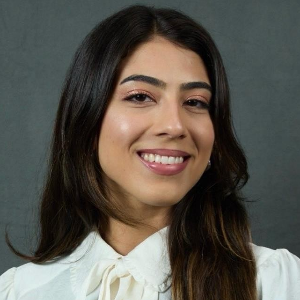Title : Effect of educational video in patients undergoing mohs surgery: A systematic review of randomized controlled trials
Abstract:
Background: Mohs micrographic surgery (MMS) is a microscopically controlled skin cancer treatment1. Patients often struggle to recall important information from in-person discussions2, prompting exploration of digital solutions3. This systematic review aims to assess the impact of educational videos on patients undergoing MMS to provide a foundation for future research and education.
Methods: PubMed and Cochrane were searched from inception to May 2024 with the following terms "educational video", "instructional video", "educational multimedia", “multimedia tool”, "mohs surgery", "mohs micrographic surgery", "mohs procedure", "mohs technique". Only randomized controlled trials were included. We adhered to the Preferred Reporting Items of Systematic Review and Meta-Analyses (PRISMA) guidelines.
Results: A total of five randomized controlled trials were included4, 5, 6, 7, 8. All studies demonstrated that a brief educational video could improve a patient's knowledge and/or comprehension and/or understanding of MMS, which was the main outcome in most studies. Among the four studies that outlined satisfaction as an outcome, Arzeno et al 4 and Das et al5 showed that the mentioned intervention increased patients' satisfaction, while Mann et al6 and Delcambre et al7 did not find a statistically significant difference in satisfaction between intervention and control. None of the three studies6, 7, 8 reporting anxiety scores found a substantial decrease in this endpoint after the instructional video. Additionally, most patients in Das et al5 and Delcambre et al7 indicated that they would recommend the video to peers with similar diagnosis.
Conclusion: In summary, educational videos have demonstrated their effectiveness in enhancing conventional patient education by significantly boosting patients' knowledge and/or comprehension and/or understanding of Mohs micrographic surgery. Further investigation should prioritize the comprehensive assessment of secondary benefits.
Audience Take Away Notes:
- Dermatologists and healthcare professionals can utilize the findings to enhance patient education strategies in their practice, specifically for patients undergoing Mohs micrographic surgery. They can incorporate educational videos as part of pre-operative education to improve patients' understanding of the procedure.
- Dermatologists and healthcare providers can utilize this to optimize patient education efforts, leading to improved patient satisfaction, reduced anxiety, and potentially better surgical outcomes. By integrating educational videos into their practice, they can enhance patient understanding and engagement, ultimately contributing to more effective patient care
- This research provides valuable insights into the effectiveness of educational videos in enhancing patient education in dermatologic surgery. Other faculty members and researchers in dermatology, surgery, medical education, and communication studies can use this research as a foundation for further investigations into the efficacy of multimedia interventions in patient education and engagement
- Incorporating educational videos into patient education can simplify the process of conveying complex information about Mohs micrographic surgery to patients. Designers involved in creating these educational materials can use this research to tailor their videos to effectively communicate key information, potentially leading to more efficient patient education and improved patient outcomes
- The research suggests that educational videos can improve patients' comprehension and understanding of Mohs micrographic surgery. Designers can use this information to create videos that accurately convey important surgical information, leading to improved patient understanding and potentially better adherence to post-operative care instructions
- Improved patient satisfaction
- Enhanced patient engagement and understanding
- Potential reduction in patient anxiety
- Better adherence to post-operative instructions
- Potential for improved surgical outcomes
- Contribution to evidence-based practice in patient education and surgical care



